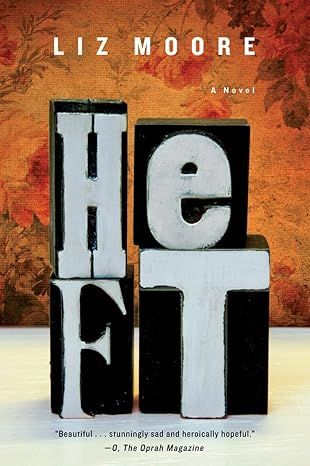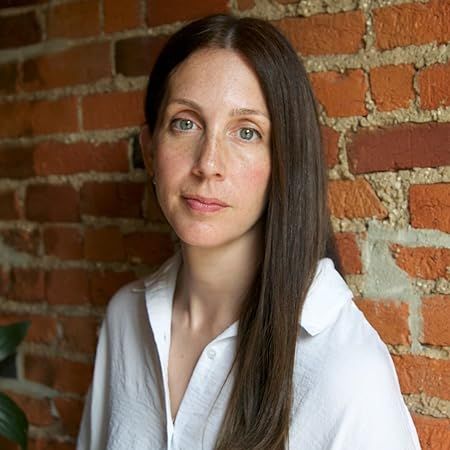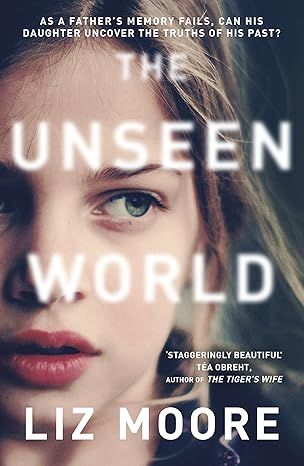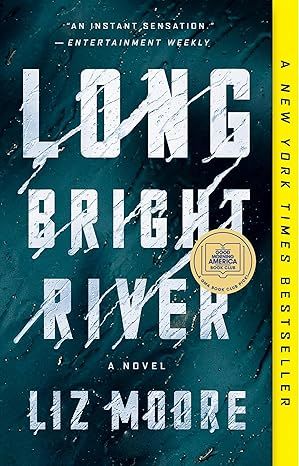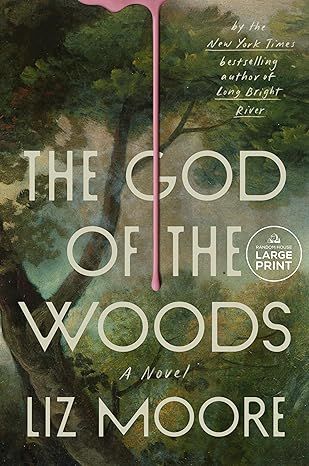Heft: A NovelAudio CD
4.3
-
2,107 ratings
From the New York Times bestselling author of Long Bright River: "A stunningly sad and heroically hopeful tale…This is a beautiful novel about relationships of the most makeshift kind." ―O, The Oprah Magazine
Arthur Opp weighs 550 pounds and hasn’t left his rambling Brooklyn home in a decade. Twenty miles away, in Yonkers, seventeen-year-old Kel Keller navigates life as the poor kid in a rich school and pins his hopes on what seems like a promising baseball career. The link between this unlikely pair is Kel’s mother, Charlene, a former student of Arthur’s. Told with warmth and intelligence through Arthur and Kel’s own quirky and lovable voices, Heft is the story of two improbable heroes whose connection transforms both their lives.
Kindle
$9.99
Available instantly
Audiobook
$0.00
with membership trial
Hardcover
$10.12
Paperback
$16.11
Ships from
Amazon.com
Payment
Secure transaction
ISBN-10
039334388X
ISBN-13
978-0393343885
Print length
368 pages
Language
English
Publisher
W. W. Norton & Company
Publication date
September 03, 2012
Dimensions
5.6 x 1 x 8.3 inches
Item weight
10.4 ounces
Product details
ASIN :
B005LW5K20
File size :
933 KB
Text-to-speech :
Enabled
Screen reader :
Supported
Enhanced typesetting :
Enabled
X-Ray :
Enabled
Word wise :
Enabled
Editorial reviews
"Moore’s characters are lovingly drawn…A truly original voice." ― The New Yorker
"Heft achieves real poignancy…The warmth, the humanity and the hope in this novel make it compelling and pleasurable." ― Washington Post
"Few novelists of recent memory have put our bleak isolation into words as clearly as Liz Moore does in her new novel." ― San Francisco Chronicle
"[Moore] writes with compassion and emotional insight but resists sentimentality…Heft leads to hope." ― People
"Tender, thoughtful." ― New York Times Book Review
"Moore’s writing is clear, persuasive, and totally engaging, bringing her characters to life in all their sweet, quirky glory." ― Boston Globe
"This is not a novel with a happy ending, and that’s a good thing. Moore doesn’t tie her story up in a pretty package and hand it to the reader with care, but artfully acknowledges in the end that some heavy loads cannot easily be left behind." ― Minneapolis Star Tribune
"Every once in a while, you read a book with such well-written, memorable characters that you know you’re going to remember them forever…Heft is a wonderful oddball of a book. I loved it." ― Jennifer Weiner
"A suspenseful, restorative novel from one of our fine young voices." ― Colum McCann
"This is the real deal, Liz Moore is the real deal―she's written a novel that will stick with you long after you've finished it." ― Russell Banks
"Heft is a work that radiantly combines compassion and a clear-eyed vision. This is a novel of rare originality and sophistication." ― Mary Gordon
"In Heft, Liz Moore creates a cast of vulnerable, lonely misfits that will break your heart and then make it soar. What a terrific novel!" ― Ann Hood
Read more
Sample
Arthur
• • •
The first thing you must know about me is that I am colossally fat. When I knew you I was what one might call plump but I am no longer plump. I eat what I want & furthermore I eat whenever I want. For years I have made very little effort to reduce the amount that I eat for I have seen no cause to. Despite this I am neither immobile nor bedridden but I do feel winded when I walk more than six or seven steps, & I do feel very shy and sort of encased in something as if I were a cello or an expensive gun.
I have no way of knowing exactly what I weigh but I estimate that it is between five and six hundred pounds. The last time I went to a doctor’s office was years ago and back then I weighed four hundred eighty pounds & they had to put me on a special scale. The doctor looked at me & told me I was very surely on a path toward early death.
Second. In my letters to you these two decades I have been untruthful by omission. For shortly after I last saw you a variety of circumstances combined to make it impossible for me to continue my academic career. About this—about many things—I have been unforthcoming. My references to former friends and colleagues are memories. I have not worked as a professor for eighteen years.
Last & most important: I no longer go out of my house.
Fortunately it is a very nice house & largely I am proud of it. I did not purchase it; it was bestowed upon me. It is 25 feet wide. Very wide for this block. & once it was very lovely inside and out, decorated very nicely, O this when I was a small boy. But now I fear I have allowed it to fall into a sort of haunted disrepair. Only scraps of its loveliness remain: the piano (I played when I was a boy); the bookshelves around the fireplace; the furniture, which once was what they call high-end, but at this point has been sinking slowly toward the floor for forty years because it has borne the weight of me on its back. There are nice things on the upper floors I suppose but I haven’t seen them in a decade. I have no reason to go up there. I couldn’t if I tried. My bedroom and everything I need are on this floor, my little world, & outside my window is the only view I need. The state of the house is one of the things I’m most ashamed of, for I have always loved the house, & sometimes when I am sentimental I feel the house loves me as well.
Because I no longer go outside, I have become very good at ordering whatever I need online. My home sometimes feels like a shipping center; every day, sometimes twice a day, somebody brings something to me. The FedEx man, the UPS man. So you see I’m not entirely a shut-in because I must sign for these things. And what leaves my house does so in garbage bags that I toss to the curb from my top step, very late at night, when it’s dark out.
There are companies now for everything. One for bringing you your books and newspapers and magazines. One for sending you supplies you might need from a pharmacy. Even one that lets you order your groceries online and then brings them to your house for you. An old-fashioned concept in some ways, a wonderful innovation in others. Once a week I select my supplies on their website. They have everything, this company—everything you could possibly think of. Prepared foods & raw ingredients. Desserts & breakfasts & wine & toilet paper. Cheese & deli meat & ice cream & cake & bagels & Pop’ems, little doughy confections that Entenmann’s bakes & then sprinkles with holiday-themed colors. Now it is October & my Pop’ems are orange and black.
A man brings my food to my home on Tuesday nights. I made sure to choose the after 5 p.m. option when I joined, which pleases me I like to think the deliveryman might believe I work all day and am just getting home. I’m very silly in this way! On the phone with customer service representatives, I casually mention family or work. How are you today, Mr Opp? asks the lady representative from Bank of America, and I sigh and say, Swamped. A little joke. In the same way, I delight in answering the door for my grocery delivery with a tie loosened about my neck and an air of exhaustion and world-weary distractedness. You can leave it just inside the door, I always say, & then walk into the kitchen, calling back over my shoulder little mundanities about the weather or a sports team. Once the boxes are all accounted for, I tip the driver with cash that I keep hidden in a drawer on my nightstand, on the inside of a hollow book. I obtained the book as a child—it was my prized possession, a hollow book!—and it has proven useful to me since. All the food I order for delivery is paid for by credit card on the phone. Tipping is the only thing I need cash for, so for a long time I have relied on the large store of bills that years ago I procured from the bank. I have no plan for when they run out. I never thought I’d need one.
The very very last time I went out of my house was in September of 2001, when I grew so lonesome watching the news that I opened my door and walked to the bottom of my stoop and sat on it, my head in my hands, for an hour. & I wished I had someone to talk to. It felt as if the world could end. Some very bad memories came to me one after another in a row. I heard what I thought was a woman screaming but that turned out to be peacocks that occupy the courtyard of a church near my brownstone. Then I hauled myself up and I walked to the end of the block, and then I walked one block beyond that, & then another, & then another. Finally I reached the corner of Ninth Street and Eighth Avenue, where two groups of women were standing in tight little circles, visibly upset. One young lady, holding a bewildered two-year-old in her arms, was crying and being heartily consoled by a friend. When I walked by them they hushed and looked. Beyond them I had a view all the way down Ninth Street toward the water & the horizon, and if I squinted and looked to my right I thought I could see black smoke rising into the sky, though I could not see downtown. Now I used to go into Manhattan quite a bit when I was younger & Manhattan was of course where I used to teach & although I didn’t like teaching I thought of my students and my former colleagues & prayed for their safety and well-being. I thought of you & felt glad your dreams of living in Manhattan had not come true. I was overwhelmed with sorrow and nostalgia—
self-pity and pity for others, which, in me, are often the same emotion. I stood until my feet could no longer bear my own weight and then I lumbered back, pausing seven times to catch my breath. The women were gone now and the streets were empty. At the bottom of my stoop I looked up to the top of my own twelve steps and vowed that I would not leave again, because you see I had no one to call, and no one called me on that day, & so that’s how I knew I did not need to go out of my house anymore.
Since that day I have been completely reclusive. Of course my natural tendency has been toward solitude from the time I was a boy, but for many years I had family & other people who kept me from shuttering myself in too tightly. I had you for a while, and people like you. But I am no longer in touch with any friends or relatives. My mother was dear to me but she died young. For several reasons that I will give you if you care to know, I do not speak to the rest of my family. Nevertheless, they have made me financially stable for the rest of my life & I do not need to earn money to be so. This too has helped me to get bigger and bigger & has allowed me to stay inside my cocoon of a house.
•
Now I spend each day in much the same way. In the morning I furtively collect the newspaper from its place on my stoop. I paid the deliveryman once to make sure that he placed it at the very top. I read all of the articles. I read the obituaries, all of them, every day. I cook or assemble feasts for myself. I wake up and plan the day’s meals and when I have something particularly good in the house I feel happy. I roam from room to room, a ghost, a large redfaced ghost, & sometimes I stop and look at a picture on the wall, & sometimes, in a particular corner or room, a memory comes to me of my past, and I pause until it has washed over me, until I feel once again alone. Sometimes I write to you. Sometimes a piece of my own furniture will make me stop and wonder where it came from. It’s a feeling of disconnectedness: I don’t know & I have no one to ask. Mostly, though, my house has grown so familiar to me that I don’t see it.
The evening of what has come to be called, on the news, 9/11, I wrote you a letter to inquire about your whereabouts & within a week I had a letter back from you. You said you & your loved ones were fine. Whether or not you have known it you have been my anchor in the world. You & your letters & your very existence have provided me with more comfort than I can explain.
These are the things you must know about me & this is my apology for the many years I have misled you by intent or omission. The slow descent of my health & the ascent of my reclusiveness have occasionally made it difficult for me to come up with suitable material for correspondence, & the fact of the matter is that I couldn’t bear the thought of an end to ours.
In spite of everything, at heart I am still the same
Arthur
• • •
When I had finished it I held the letter in my hands before me & imagined sending it. Imagined very clearly folding it into sharp thirds & taking with my right hand the envelope & inserting with my left the letter. & then sealing it. & then inscribing it with Charlene’s address, which I know as well as my own. O you coward, you coward, I thought, if you were worth anything you’d do it. While writing it I had felt a sort of grand relief, to be unburdening myself after so long, to someone I cared for so deeply. It was the letter I had always imagined writing to her. But unsurprisingly I was too afraid to send it, & so I told myself that it was a selfish sort of honesty, the sort that Charlene didn’t need to be encumbered with anyway.
The events that prompted me to write it are as follows.
First, three days ago, the phone rang. I had been doing absolutely nothing & it gave me a very great shock. I nearly jumped out of my skin. I waited a few rings to let my breathing settle before I answered.
A voice came through the wires. “Arthur?” someone said. “Arthur Opp?”
Now I do not get many personal calls & my heart leapt at who it might be.
“Yes,” I said, I whispered.
It was Charlene Turner. I did not expect to hear her voice ever again in my life but O God I was very glad to. I nearly cried out but stopped myself. I clapped a hand over my mouth instead & bit the inner flesh of it.
It has been nearly two decades since I last saw her. The
in-person relationship we had many years ago evolved naturally into a sort of steady and faithful written correspondence. But over these many years, our letters have become inexpressibly important to me. An outsider might call us only pen pals but over time I feel I have come to know Charlene Turner as well as I have ever known anyone, & have tentatively imagined that one day we would see each other again, we would resume our relationship, & all in all it would be very natural & easy.
Still: her call unnerved me.
We talked briefly & I tried to sound quite calm and relaxed but accidentally I told an extraordinary number of lies.
I wanted to say Have you been receiving my letters—it has been nearly a year since I have heard from her, and she used to write more often than that—but instead I said “How have you been.”
She said, “All right.” In such a way that it sounded as if she wanted me to understand the opposite.
We spoke for a while about nothing. I updated her on William, the brother whose closeness to me I exaggerated on a whim in one of my notes to her. I told her he was doing very well and was in fact retiring next year after a celebrated career as an architect. I told her that last month I had visited family in England and that yesterday I’d spent in Manhattan, visiting an old friend. Then I told her I’d taken up photography.
“Great,” said Charlene, & I too said “Great.”
“Are you still teaching?” said Charlene.
“No, I’ve stopped teaching,” I said—I said without thinking.
And she said O no in such a way that she sounded utterly utterly disappointed & forlorn.
So I said “But I tutor now.” Just so it would seem as if I had been doing a little something all these years.
At this she brightened & told me that this was in fact why she was calling.
“I’m going to send you a letter, Arthur,” said Charlene. When I focused on her voice I realized she sounded very strange, faraway & remorseful, & slower than she was when I knew her, as if her tongue had gotten heavier. She very possibly sounded drunk. It was two in the afternoon.
“All right,” I said.
“Look for it,” she said. “You’re still at the same address,” she said.
“I am,” I said.
“Look for it,” she said again.
“All right,” I said.
“What will be in it,” I said, but she had already hung up the phone.
I sat on the couch for a while. Then I went into my bedroom & sat on my bed. Then I opened the drawer of my bedside table & from it pulled a stack of all the letters Charlene ever sent me. They are a slim volume altogether, perhaps forty pages in sum. Her handwriting in these letters is tight as a drum, small and overlapping. I read all of them in a row that evening—an indulgence I have rarely allowed myself over our two decades of correspondence—& I granted myself permission, just for a moment, to dream of Charlene, to remember our brief relationship with the same affection & passion that, for many years, has sustained me.
& then this morning, with nothing much else to do, I sat down and wrote the letter to her that I have composed over & over again in my head—the truth-telling letter, the healing admission of my darkest secrets—the letter I knew I would have to send her if we were ever to meet again. The letter I would, indeed, send her right this moment if I were not very cowardly indeed. As it turns out, however, I am.
Read more
About the authors
Liz Moore
Liz Moore is the author of five novels: The Words of Every Song, Heft, The Unseen World, the New York Times-bestselling Long Bright River, and The God of the Woods. A winner of the 2014 Rome Prize in Literature, she lives in Philadelphia and teaches in the MFA program in Creative Writing at Temple University.
Reviews
Customer reviews
4.3 out of 5
2,107 global ratings
MJC
5
I'll take fries with that...
Reviewed in the United States on April 24, 2012
Verified Purchase
This is a beautifully written & thought provoking novel by Liz Moore. Close to the style of Anne Tyler with unique, quirky, & fascinating characters. Here is the story of Arthur Opp, an academic scholar who has become trapped by his obesity & loneliness in a hoarder's decorated home. The ten long years of eating and hiding his life away is suddenly disrupted when a letter from a former student arrives in the mail. I've read many books over my lifetime and these days its rare for me to find a book that I don't skim or skip through. I absorbed every single line of this book, often returning to parts of the story because I so enjoyed reading it. I did not find the end disappointing as one reviewer noted, I found the end heartwarming, hopeful, and honest. This is a wonderful story and a well written novel. I highly recommend it.
Read more
5 people found this helpful
Eric Selby
5
A Beautifully Written Novel with Convincing Characters
Reviewed in the United States on October 12, 2012
Verified Purchase
This amazing novel opens with a letter to someone written by obese Arthur Opp explaing why he hasn't left his house since September 11th, 2001, immediately setting up verisimilitude issues that I want answered. How could that be? But he covers most of the issues such as how he gets food--and lots of it. But no visit to a dentist? A doctor? After all, he is nearly 600 pounds and 58 years old. (That part never does get answered which would be the single flaw I see in the novel.) To a bnak although that is somewhat covered? Arthur was a college professor and lives in Brooklyn. And as I read, I thought about how he would have secured a stamp unless he affixed a bunch with a decade of history behind them. And then suddenly I meet Charlene Turner from 20 years or so earlier, his student in a nigh class. "She writes a whole paper on 'Medea' in which she stated, over and over again, in several different ways, that Medea was selfish and evil." Since I teach college students in basic composition, that struck me as both amusing and, alas, all too familiar in a country where education has plunged rapidly in the past couple of decades. This is my introduction to a novel written without using the word "and" but instead &, including beginning sentences with &. & now I think I will try doing that in some of my writing! Arthur narrates his story. And through Charlene we meet Kel, a high school senior and addicted to baseball and very good at it. I won't tell you any more than that. But Kel narrates his story which I also find believable even though he is a C student, but a C student by choice because his entire life is devoted to becoming a professional baseball player. And we are led to believe he is indeed good enough to do so. Arthur's back story unfolds as he prepares for the arrival of Charlene and Kel after twenty years without any communication from her. She lives in Yonkers but works at a high school called Pells Landing High School where the wealthy live. This, of course, is a fictional place although one does think Westchester County or even across the border to Greenwich, Connecticut maybe. And since Arthur is close to be immobile and his house--one he inherited from his mother, a brownstone--is a mess, then that is how Yolanda enters the pages. She works for a cleaning agency. And she becomes a very important character in the novel. This is a novel about addiction, but not a preachy one, not at all. Charlene is an alcoholic. Arthur is addicted to both food and as a result of his size to being alone with his TV. And, of course, a teenager wanting to become a major baseball player, the very best. I will avoid telling any more except that the narrator are believable.
Read more
RabidReader
5
POIGNANT, POWERFUL, AND HEARTBREAKING
Reviewed in the United States on November 24, 2014
Verified Purchase
Heft is the heartbreaking story of two lonely, damaged, people who fail to grasp their one chance of attaining happiness. It is also the story of an eighteen year old boy who must find his way through the morass of tragedy that lies in the wake of that unhappiness.
Arthur Opp's lonely existence has manifested itself in an eating disorder that has made him obscenely obese. Once a college professor, he has become a reclusive shut-in. The unbearable sadness of his life will tear at the strings of your heart. However, the reader will also experience repugnance at his weakness, his inability to fight for anything that might bring him redemption. He wallows in his own Shakespearean tragedy.
Charlene, is a lost soul who has spent her life dreaming of a world that she is ill equipped to live in. Her final dissent into a world of alcoholic escapism is tragic, but predictable. Somehow this ghost of a person has managed to raise a boy that personifies all of the possibilities that she herself never possessed.
Charlene's son Kell,a survivor, may yet achieve his dreams. Certainly, he has the strength of character, and the talent to reshape his destiny. But, can he escape his own demons?
Moore has created a beautifully written novel about these three disparate characters, and what becomes of them. Who will rise above the abyss that fate has delivered to them? The story is a reminder that though you cannot choose your family, you can choose your friends.
Read more
Sharon M.
5
Intriguing, heartwarming character study
Reviewed in the United States on April 30, 2012
Verified Purchase
I have been trying to pinpoint what reading experience "Heft" called to mind and realize now that it is Carson McCullers' "The Heart is a Lonely Hunter". This, too, is the story of damaged, lonely people longing for personal fulfillment and connections that are grounded in genuine and mutual regard. The characters' truths are revealed gradually, almost as if they have to learn that they can trust the reader, as well as each other. Although flawed, the book's protagonists are also so utterly redeemable that it is easy to accept some plot manipulations to produce hopeful outcomes. It has been a long time since I've read a novel that satisfied on so many levels: both narrators' voices ring true; the characters are rounded; the novel explores essential human issues; the writing seems effortless ( no small feat). This is a book that left me thinking -- and feeling.
Read more
2 people found this helpful
Lisa P. Benwitz
4
Five-star except for the ending
Reviewed in the United States on February 23, 2012
Verified Purchase
I am not going to include a plot summary here, as other reviewers have already done so. This book was a sad and lovely portrait of loneliness and hope, and the voices of Arthur and Kel were perfection, each in their own way ~ never overblown, never overdone or melodramatic, which would have been all too easy to do. However, the ending of the book was so abrupt and so shocking, I had to keep clicking back to make sure I hadn't somehow missed a chapter.
As an author myself, I can understsand author Liz Moore's decision to end this story in the realm of possibility... these characters had all reached way beyond their respective comfort zones; therefore, ANYTHING could happen. It is left to each of us to imagine that encounter and the events thereafter. However, the book was so well-constructed and so deftly characterized that I grew very attached to these characters and wound up feeling extremely cheated and dissatisfied. I wouldn't have minded the ending being left open-ended in terms of the characters' future... but I wanted - no, NEEDED to be there for that dinner. But for that, this would have been a five-star novel.
That being said, as one reviewer mentioned, the ampersands bothered me a great deal, as did the repeated use of "O" as opposed to "Oh." I'm not sure if these were Kindle formatting issues or the writer's intent, but even were "O" to be an affectation of Arthur's, it didn't work here and only distracted from the character. The rest of the book was close to perfection for me, and I think it would make a splendid movie... ESPECIALLY if it included the dinner party.
Read more
5 people found this helpful
Top Liz Moore titles
View allBest Sellers
View all
The Tuscan Child
4.2
-
100,022
$8.39

The Thursday Murder Club: A Novel (A Thursday Murder Club Mystery)
4.3
-
155,575
$6.33

Sapiens: A Brief History of Humankind
4.6
-
140,302
$13.49

The Butterfly Garden (The Collector, 1)
4.3
-
88,556
$9.59

Things We Hide from the Light (Knockemout Series, 2)
4.4
-
94,890
$11.66

The Last Thing He Told Me: A Novel
4.3
-
154,085
$2.99

The Perfect Marriage: A Completely Gripping Psychological Suspense
4.3
-
143,196
$9.47

The Coworker
4.1
-
80,003
$13.48

First Lie Wins: A Novel (Random House Large Print)
4.3
-
54,062
$14.99

Mile High (Windy City Series Book 1)
4.4
-
59,745
$16.19

Layla
4.2
-
107,613
$8.99

The Locked Door
4.4
-
94,673
$8.53
